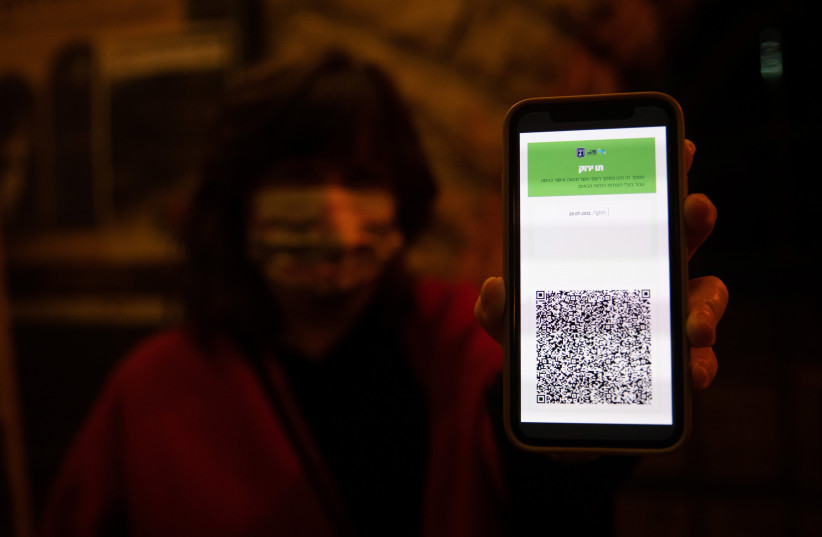In the wake of a strong public backlash, the Health Ministry this week backtracked on its decision to require individuals to wear bracelets when they visit shopping malls, indicating that they have been vaccinated. It was a rare acknowledgment that the government had gone too far in its efforts – however justifiable – to pressure unvaccinated Israelis to get jabbed and prevent the spread of the Omicron variant.
The move prompts us to wonder whether the government, which has now exceeded six months in office, has not gone overboard. Even though most experts now say that the South African variant may be highly contagious but it is also far less severe than originally feared, the government seems to be escalating its war against Omicron.
On behalf of all Israelis – and potential visitors to the country – let us ask:
- Was it really necessary to extend the travel restrictions on most foreign nationals until December 29, even though this constitutes a real blow to Jews from around the world and Christian pilgrims planning a trip to the holy land over the Christmas-New Year period?
- Was it really necessary to declare another seven countries “red” – including the United Arab Emirates – just days after that country hosted Prime Minister Naftali Bennett for the first visit by an Israeli leader? And is it really necessary to declare more countries red, especially the US and Canada, which would cause real harm?
- Was it really necessary to introduce a series of draconian measures for travelers returning to Israel from abroad, including a seven-day quarantine from red countries?
- Was it really necessary for Bennett and Health Minister Nitzan Horowitz to announce that as of this weekend, only people carrying a Green Pass may enter malls and other closed facilities?
- Yes, it is true that as of yesterday, there were 89 confirmed Omicron cases reported in Israel and another 150 suspected of being infected with the variant. But so far no deaths have been reported in Israel from Omicron, and Israeli researchers have determined that a three-shot course of the Pfizer/BioNTech vaccine provides significant protection against Omicron.
Before he became prime minister, Bennett stated that Israelis must learn to live with COVID-19 and he firmly opposed closing up the economy and Israel’s borders. It is time now for Bennett to flex his muscles and show true leadership.

Yes, we must continue to urge everyone to be vaccinated and, if they haven’t yet, get the booster and the Green Pass. Yes, we must wear masks and take precautionary measures when we are with others, especially indoors. And yes, we must look after weaker members of society – including the elderly, frail and ailing.
But life must go on, and the economy must continue to operate if we are to survive what appears to be the start of a fifth wave. Israel has made vaccination its key tactic in dealing with the virus, and last month added children aged 5-11 to older groups already eligible to get the shots.
In announcing the latest measures to counter Omicron, Bennett, Finance Minister Avigdor Liberman, Tourism Minister Yoel Razvozov and Economy and Industry Minister Orna Barbivai agreed on an assistance package for the tourism sector as part of the effort to deal with Omicron.
“We are coming to the assistance of tourism sector workers at a difficult time,” Bennett stated. “The goal is to protect the health of the citizens of Israel from the Omicron strain and, at the same time, keep the economy open and orderly.”
We urge the prime minister and the government to consider not just the tourism sector but all sectors – from malls and stores to hotels and restaurants – and when the current restrictions end on December 29 – and assuming the variant does not change in its severity – they should open Israel up again, for everyone.
We need to make sure that people – especially Diaspora Jews – who want to visit Israel can, so we can all look forward to a new wave of tourists and pilgrims as we bid farewell to 2021 and usher in 2022. We need to see some light at the end of this tunnel.
